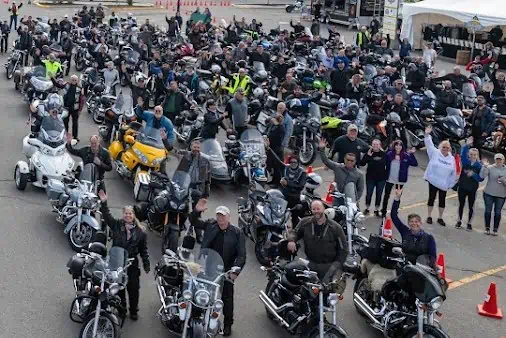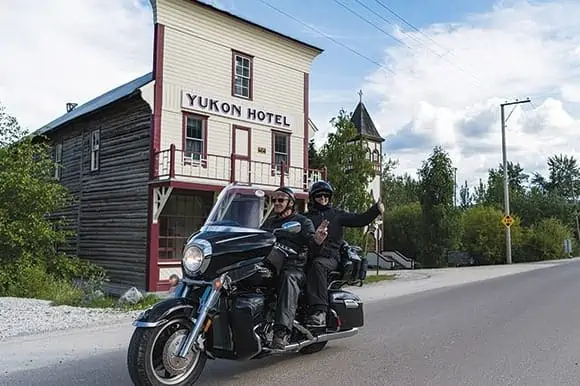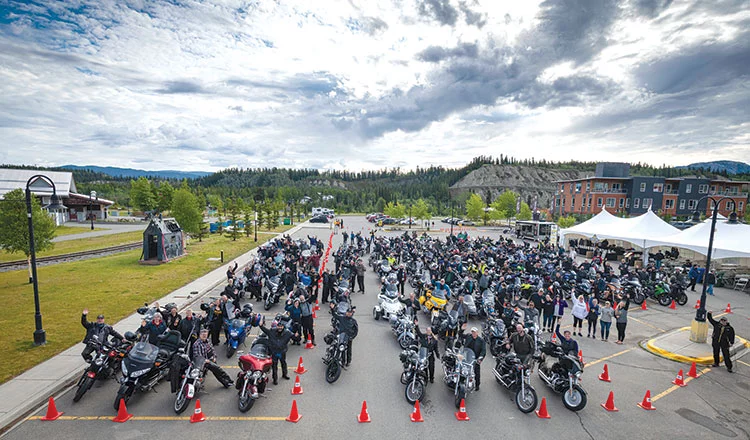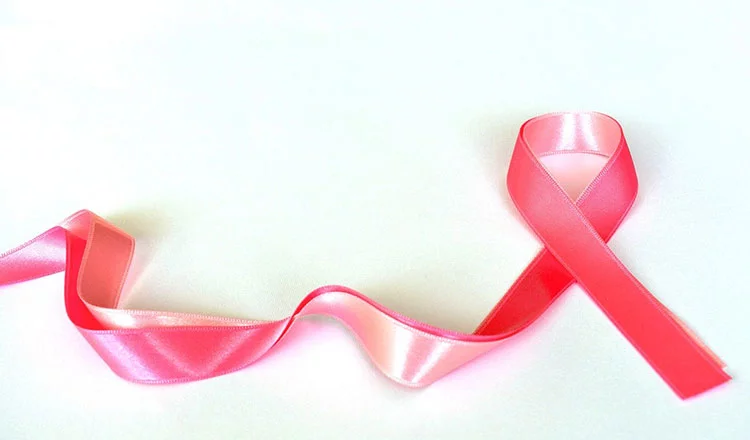When we talk about dying of embarrassment, it is meant to be a figure of speech.
Dying of embarrassment is sheer hyperbole. Except when it isn’t.
When something is too embarrassing, or too damaging to our pride, we often don’t talk about it. Sometimes these things are harmless. Sometimes they can kill.
Prostate cancer falls under the second heading.
It is typically a slow-growing form of cancer. Most men diagnosed with it die of other causes before the cancer kills them. In fact 96 percent of the men who have it survive.
However, given that one in seven Canadian men will be diagnosed with prostate cancer in their lifetimes, that four-percent mortality rate adds up.
But even that leaves aside an awkward truth: many men go undiagnosed and others are diagnosed too late, because the prostate is in a part of their bodies they don’t discuss.
Mike Thorpe knows the consequences of this reticence better than he would like.
“I lost my grandfather in 1999 to prostate cancer, mostly because he wouldn’t go and get checked. My grandpa was a tough old guy from the prairies and the last thing he wanted to deal with was the doctor, let alone hospitals.”
Three years ago Thorpe was approached by Al and Leah Verishine, in his capacity as a manager at McDonalds’s, to help sponsor something called the Ride for Dad, a motorcycle rally whose goal was to raise money for the fight against prostate cancer.
The Verishines were already heavily involved in the motorcycle community, having been part of the executive of the Yukon Harley Owners Group.
“We were approached by the regional director from Edmonton, who was up visiting his friends,” says Leah.
“We decided to become involved because it’s a great cause, firstly, and with the contacts we had from the Harley world, we might be able to do a decent job of getting it off the ground here.”
The first edition of this motorcycle-based fundraiser was held in Ottawa and raised $20,000. Since then, the ride has seen 250,000 participants in yearly events across Canada, with donations topping $9 million.
As with many other cancers, there is some dispute about the best method of detecting and treating prostate cancer. Dr. Brendan Hanley, the Yukon’s medical officer of health, believes that, despite this, men should take action to protect themselves.
“There is still a lot of controversy about the benefits of PSA [prostate-specific antigen] screening. We need a better screening test than PSA. There is evidence that early treatment does make a difference,” Hanley says.
“Men should not sit on problems that may be due to prostate cancer, such as increased frequency of urination, getting up at night frequently to pee or having urgency to urinate, for example.”
The motorcycle theme sets the Ride for Dad apart from other cancer-fighting charities. It also deliberately undercuts the ethos that contributes to prostate cancer going undiagnosed.
The manliness of the motorcycle (womanliness of it notwithstanding) can’t be denied, and the message is clear: these men aren’t afraid to talk about prostate cancer, so why should you be?
“Men are notorious for not wanting to see doctors and not wanting to go to the hospital,” says Thorpe.
“Certainly when you start talking about prostate cancer and prostate checks, many people just cringe when you say that.”
Getting through that cringe reflex can be difficult. It was something Leah Verishine experienced firsthand at the initial Ride for Dad in Whitehorse back in 2010.
“When we first introduced the ride to Whitehorse, we didn’t know what to expect as a reaction. We were in the Rendezvous parade in February, then our big ‘coming out’ was at the Trade Show in May,” she says.
“People would see the word ‘motorcycle’ on the banner, start to come over to our booth to check it out, then see the words ‘prostate cancer’ and get this look of shock on their faces and turn away.”
The team behind the national ad campaign for this year’s ride decided to cut through the cringe with humour. Some samples from this year’s ride posters include:
“Actually you CAN please your wife in just three minutes,” (the length of time for a standard prostate exam), and “Shoulda, Coulda, Woulda. There’s no excuse for dying from prostate cancer.”
These, alongside radio and TV spots, are designed to grab attention. While ride organizers also publish more traditional fare, Thorpe believes the lighter approach is important in broaching the taboo.
“Some of the ads are edgier. It needs to be somewhat lighthearted for people to have the conversation. This isn’t a comfortable subject for most people to talk about, but if you can add some humour, it gets the conversation going.”
Leah has seen public attitudes shift since the first ride.
“We likened it to where breast cancer campaigns were about 10 years ago. Now? We have broken the ice, and people see our billboards on the highway, the signs on the buses, hear the ads on the radio, and they’re far more accepting of the idea.”
The Ride for Dad is not limited to any one brand of motorcycle, or even to riders. Those not lucky enough to be be-hogged can donate, or help sponsor individual riders.
Two-wheeled individuals can participate by registering and collecting pledges.
This year the Whitehorse ride will move downtown for the first time. Previous rides took place at Mount McIntyre, but this year’s ride will start at 11 a.m. on Saturday, June 9 from Whitehorse Motors.
Non-riders are encouraged to come and drool over the bikes at the show and shine, to watch the parade and, of course, to donate.




